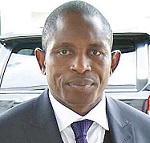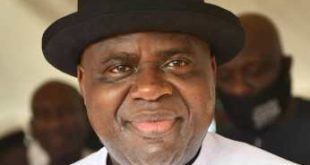By Joel Anekwe
As the world forges ahead with energy transition to reduced dependence on fossil fuel, Nigeria’s President Muhammadu Buhari has called for a cost reduction strategy to make the exploration and production of crude oil more competitive and attractive to investors.
The President who was represented at the occasion by the minister Of state for Petroleum Timipreye Sylva made the call at the Nigeria International Petroleum Summit (NIPS) which opened at the State House Abuja on Monday, noting that as part of efforts to withstand the pressure from the energy transition threats the oil and gas industry in sub-Saharan Africa must adopt new strategies and approach to remain relevant in years to come.
“The Oil and Gas sector needs to drive cost down before it becomes impossible to compete”, the President charged, urging for discovery of new oil fields.
He acknowledged that though the global agenda for energy transition has been forced to the back seat, with governments trying to restart the global economy after the Covid-19 pandemic, the threat to fossil fuel remains real.
He however stated that because of man’s insatiable need for energy, fossil fuel would remain relevant and a multi-trillion dollar industry in the coming decades.
He therefore advised industry operators to adopt a new strategy and approach to exploit existing opportunities in the oil and gas industry adding that the federal Government has demonstrated unparalleled commitment to revamping the oil industry in Nigeria.
President Buhari said; “Creating an environment for our hydrocarbon industry to thrive is no longer a choice but a priority,” noting that the crisis in the industry today was exacerbated by demand disruption and supply glut caused by the global Covid-19 pandemic.
In his remarks, Senate President, Ahmed Lawan, said that the National Assembly has collaborated with the executive arm of the government to remove the bottlenecks against the passage of the Petroleum Industry Bill (PIB) announcing that with conclusion of harmonization by both chambers of the National Assembly the bill would be passed before the end of June.
Announcing the full support of the National Assembly for efforts to actualize the dreams of the oil industry in Nigeria, he stated that the NASS more than ever before was working in synergy with the executive arm of the government to make the oil sector more lucrative.
“As we speak, the joint committee of the both houses of the National Assembly is expected to conclude its report on the PIB in the coming days. So the PIB will be passed within this month and the NASS has decided that the hydrocarbon we have in Nigeria must benefit Nigerians, but we need a conducive business climate to attract investors within and outside the country.
“The final product of the PIB will be a win-win for everyone. So we must continue to ensure that there is calm, there is stability and security in the Niger Delta area where the oil is produced”, Senator Lawan said.
Speaking in his capacity as the minister of state for Petroleum, Timipreye Sylva noted with gladness that the last edition of the summit, which was its third, was about the last of such physical events that held before the Covid-19 lockdown, adding that it was gratifying that the 4th edition could still hold physically.
He said there was no doubt that the summit has achieved its mandate especially with this edition coming on the eve of the successful award of new marginal oil fields after unsuccessful attempts in the past 20 years.
Sylva stated that even though he believes in the global agenda for energy transition, he could not see that happening overnight, adding that Nigeria is on the track to moving its energy to renewable sources while providing the lead on that.
“For me the approach is collaboration. There is no better time to shift the mindset but now, to achieve the new marginal fields. With joint efforts we can achieve our goal. Let us entrench the culture by working together because it is the surest way the industry can truly advance”, the minister stated.
 PH Mundial – Port Harcourt Online Newspaper News Across The Region
PH Mundial – Port Harcourt Online Newspaper News Across The Region




